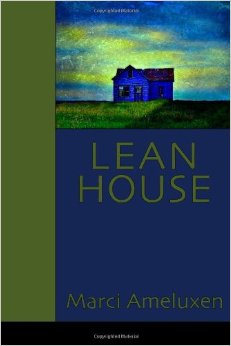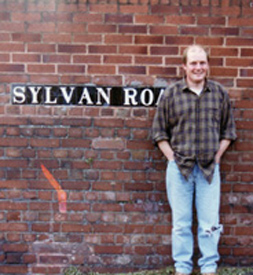Each Thing Touches by Marc Frazier
– Reviewed by James O’Leary –
“I heard corn grow as a child / and now everything is noise.” The opening poem of Each Thing Touches, titled ‘After,’ is separated from the main body as a kind of frontispiece, and sets the tone for the collection while offering insight into the poet’s point of view. His engagement with the mechanics of storytelling runs through his work, and his interest in how people relate to their environment. The turning point of this poem is also a mainspring of the book:
When I learned cursive,
I began to think.
When I first made a question mark,
I was born.
Frazier’s poems are unafraid of questions, frequently investigating forgetfulness and the unreliability of memory. He approaches most ideas from a place of not knowing; he is seeking rather than telling. I have trust in a poet who is confident enough to express uncertainty, especially when they can back it up with a clear aptitude for craft. ‘The Weight of Each Word’ is one such explorative poem, speaking to the importance of finding truth and conveying it accurately:
I have known the addict’s next,
the return to wholeness – what passes for it.
I can’t help but read into this obsession with specificity, that grain of compulsion that must exist for someone to choose poetry as an artistic method. While many poems have this sharp focus, others (more often than not, poems from the first person persepective, such as ‘Undertow’) stray too far into the abstract. They just don’t contain enough concrete objects to ground me in the ideas they express: more conceptual and intellectual poems that neglect tangible images leave very little impression on me.
Then I come to a poem like ‘California’ and I’m struck by the life and vibrancy of it – these robust, feet-on-the-ground poems work in large part because they are full of details, places, and things with real texture and definition. ‘A Sunday Visit,’ for example, is populated by people with agency, who interact with their surroundings. These poems feel immediate and vital.
There is always beef – sides of it lie dead in the freezer breathing mere feet from where we gather
around the table.
A farmer’s meal of mashed potatoes and roast.
Frozen pumpkin pie rests on a crust of vanilla ice cream for dessert.
Rita turns on the radio standing like another person in the scrubbed kitchen.
Frazier is at his best when he is telling a story, describing events as an outside observer. Towards the end of this collection, there are some beautifully plain-spoken poems, which are all the more effective because they don’t feel like they’re wrestling with big ideas and abstract concepts. Frazier’s skill and control finds its home in everyday encounters, as in the opening of ‘Antonio’:
Through steam you ask if I speak Spanish.
Over a beer you say you like my shoulders.Late afternoon rain falls from the roof
as we lie stuck together like wet leaves.





